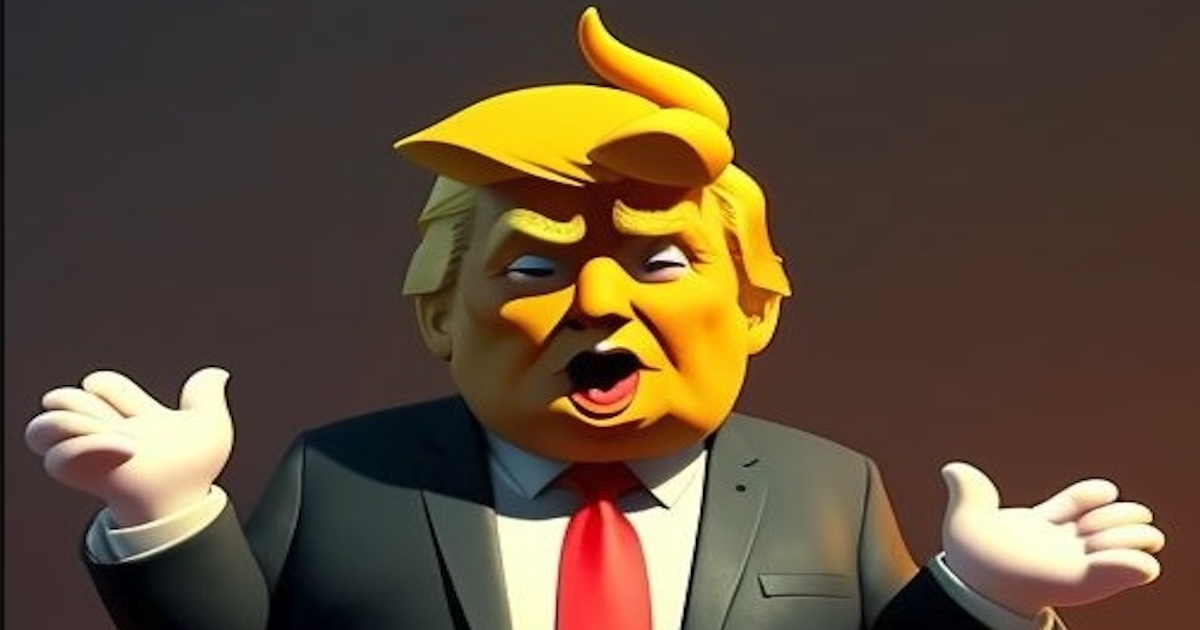
t is a truth universally acknowledged—at least by those still capable of cynicism—that a returning President must fill his cabinet with those who have displayed the two great virtues of politics: loyalty and obedience. And so it is with President-elect Donald J. Trump, who has unveiled a slate of appointments for his second administration that would make even the most devoted sycophant blush with envy.
The centerpiece of this grand tableau is Senator Marco Rubio, the new Secretary of State. Once a strident critic who dared to call Trump a “con man” during the 2016 primaries, Rubio has since undergone a remarkable transformation, much like a caterpillar that metamorphoses into a butterfly only to promptly land on a gilded leash. Now, armed with hawkish stances on China, Cuba, and Iran, Rubio is prepared to carry the mantle of diplomacy by apparently replacing dialogue with saber-rattling. One wonders if his new foreign policy motto will be “speak loudly and carry a big ego.”
Then there is Matt Gaetz, our Attorney General designate, whose resume reads like a fever dream of controversy. A man dogged by allegations and ethics investigations, he has been plucked from the swamp he once promised to drain and placed at the helm of the Justice Department. In Trump’s words, Gaetz will end “Weaponized Government,” though many suspect he might wield that very weapon with giddy enthusiasm—aimed, of course, at Trump’s enemies.
Tulsi Gabbard, the former Democrat turned Trump loyalist, has been tapped as Director of National Intelligence. Her military experience and penchant for contrarian statements have earned her a place in Trump’s inner circle, where she will oversee the intelligence community with all the finesse of an outsider navigating a minefield. It is a bold choice, if only because “loyalty” and “experience” rarely appear together on the resumes of this administration’s appointees.
The Department of Defense will fall under the stewardship of Pete Hegseth, a man whose qualifications include hosting a morning talk show and appearing regularly on Fox News. While he does boast military service, his lack of senior defense experience makes one wonder if his true expertise lies in parroting talking points rather than formulating strategy. “PEACE THROUGH STRENGTH,” Trump declares, though in this case, it might better be called “Peace Through Ratings.”
Kristi Noem’s appointment as Secretary of Homeland Security ensures that the department will be guided by someone who prides herself on keeping South Dakota “open for business” during a global pandemic. Noem’s tenure promises a hardline approach to immigration, including mass deportations, a policy as logistically complex as it is morally fraught. Her experience shooting her dog, as recounted in her memoir, might well prepare her for the metaphorical bloodshed ahead.
John Ratcliffe, Robert F. Kennedy Jr., and Lee Zeldin round out this rogues’ gallery of appointees, each bringing their own unique blend of controversy and loyalty to the table. Ratcliffe returns to the intelligence community, where his first stint was marked by partisan loyalty rather than groundbreaking insight. Kennedy, a noted vaccine skeptic, will helm Health and Human Services, likely leaving epidemiologists and virologists reaching for antacids. And Zeldin, a former congressman with no environmental experience, will lead the EPA—an appointment that should thrill fossil fuel lobbyists and terrify polar bears.
The White House staff is similarly a tribute to fealty. Susie Wiles will manage Trump’s operations as Chief of Staff, joined by a cadre of deputies including Stephen Miller, Dan Scavino, and others whose devotion to Trump’s agenda is matched only by their polarizing reputations. Stephen Miller’s continued role suggests immigration policies will be as hardline as ever, with mass deportations and border crackdowns taking center stage.
Ambassadors and envoys complete the picture, with Mike Huckabee representing the U.S. in Israel and Elise Stefanik taking on the United Nations. Huckabee, a staunch evangelical, promises to align U.S. foreign policy with Old Testament enthusiasm, while Stefanik will champion Trump’s agenda on the global stage with the vigor of a true believer.
Adding to this ensemble is the creation of the Department of Government Efficiency (DOGE), a new entity aimed at streamlining federal operations—or at least creating the illusion of doing so. At its helm, Trump has named Elon Musk and Vivek Ramaswamy as co-chairs. Musk, a tech billionaire known for his eccentricity and disdain for bureaucracy, will undoubtedly bring his trademark chaos to the department. Ramaswamy, a biotech entrepreneur turned political commentator, will provide intellectual cover for whatever bold, half-baked initiatives the duo conjure up. Whether DOGE will amount to anything more than a headline-grabbing vanity project remains to be seen.
The overarching theme of this administration’s appointments is unmistakable: loyalty trumps qualifications, and hardline policies reign supreme. Whether this approach will translate to effective governance is beside the point. In Trump’s world, the spectacle is the governance, and the governance is the spectacle. The only question left is whether the nation can endure another four years of this theater—or whether it will be left wondering, once again, if the price of loyalty is too high for the republic to bear.


